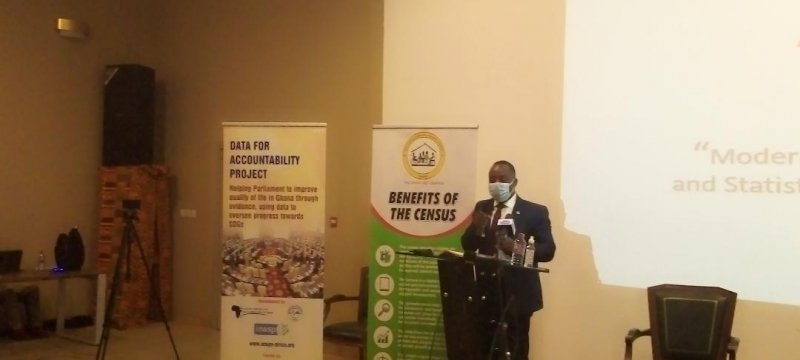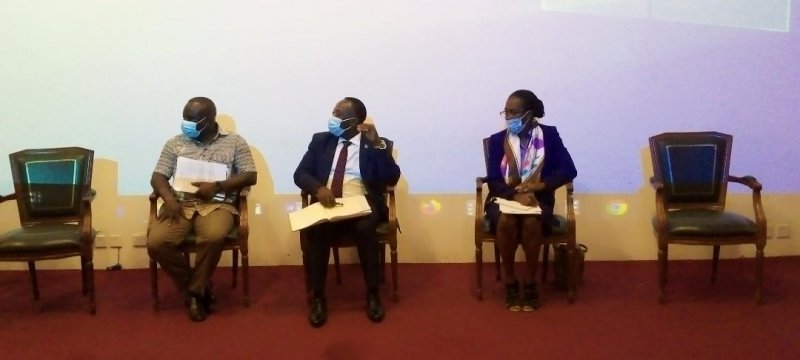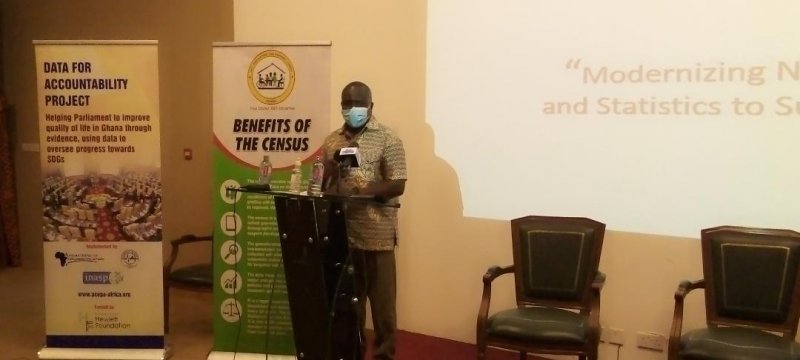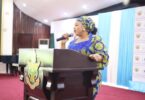Source: GNA
Professor Samuel Kobina Annim, Government Statistician, has charged African governments to take advantage of the opportunity offered by the outbreak of the COVID-19 pandemic to transform and strengthen their statistical systems.
He said the aftermath of the COVID-19 had revealed massive flaws in many systems, including limitations in relying on traditional methods to collect, store, manage data and statistics.

Strengthening national statistical systems, and notably national statistical offices, through the use of modern and advanced technologies, as well as new data sources would maximise efficiency, provide reliable data and statistics required to achieve sustainable development and peaceful co-existence in Africa, he said.
Prof Annim made the call at a Data User Symposium in Accra. The symposium formed part of activities to commemorate this year’s African Statistics Day.
Organised by the Ghana Statistical Service (GSS), it sought to among other things inform data users of the official statistics available to empower their decision-making processes and to inspire and promote the continuous utilisation of data produced in Ghana’s National Statistical System.
Prof Annim explained that one crucial way African countries and Ghana, in particular, could achieve sustainable development was to ensure the availability and utilisation of regular, timely, accurate, and reliable statistics, especially those obtained through censuses and surveys.
“Such statistics form the bases for effective policy planning and implementation, which in turn provide the needed impetus for promoting peace, security and socio-economic development,” he added.

Initiated in May 1990 by the United Nations Commission for Africa (UNECA), the African Statistics Day is marked annually to raise public awareness of the importance of statistics in all aspects of social and economic life.
This year’s commemoration was held on the theme: “Modernizing national statistical systems to provide data and statistics to support sustainable peace and development in Africa.”
Prof Annim said the African Statistics Day offered an opportunity for the continent to reflect on some realities and to compel governments to modernise their National Statistical Systems to ensure adherence to the United Nation’s Fundamental Principle of Official Statistics, achieve the global and national development agendas and to be able to respond to both the anticipated (political and financial led crisis) as well as unanticipated (health-related – COVID-19) risk of the contemporary world.
“Doing so now is more urgent than ever, given the central thrust of Agenda 2063 of building a peaceful, stable, secure, integrated and prosperous Africa, and the emphasis of the 2030 Agenda on leaving no one behind,” he added.

The Government Statistician called on data gathering institutions such as Civil Society Organisations and Non-Governmental Organisations, as well as private individuals to collaborate with GSS to ensure uniformity in statistics generated in the country.
He said as the mandated institution tasked to collect, compile, analyse, and disseminate official statistics for general and administrative purposes, it remained committed to ensuring that only accurate and reliable statistical data churned out to facilitate effective policy formulations.
He also expressed commitment towards fighting the misuse of statistical data in the country.
While calling for timely funding of activities of the service, Prof Annim commended government and development partners for their continued support.
Dr Evans Aggrey-Darkoh, Chief Director, Ministry of Parliamentary Affairs said even though African statistical systems had witnessed significant progress in recent years, most African countries continued to grapple with the production of high-quality statistics.
The use of alternative and new data sources could prove critical in addressing existing data gaps, improve data quality and respond to new emerging needs, he said.
He urged GSS to collaborate more with relevant stakeholders, as well as build the capacity of staff to enable them to produce accurate data to address national problems.
Source: GNA









[…] Ghana Statistical Service (GSS) will commence training of 1,605 prospective District Data Quality Management Team (DDQMT) members for the 2021 Population and Housing Census (PHC). […]